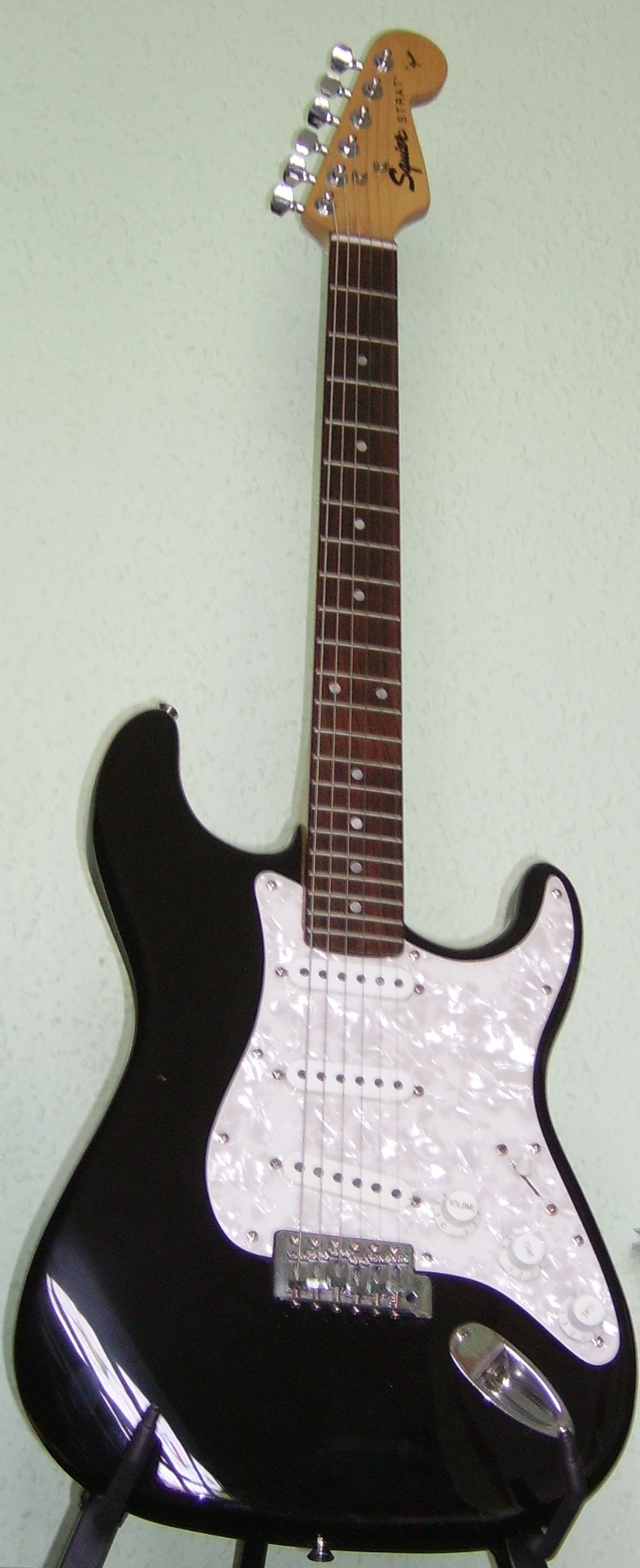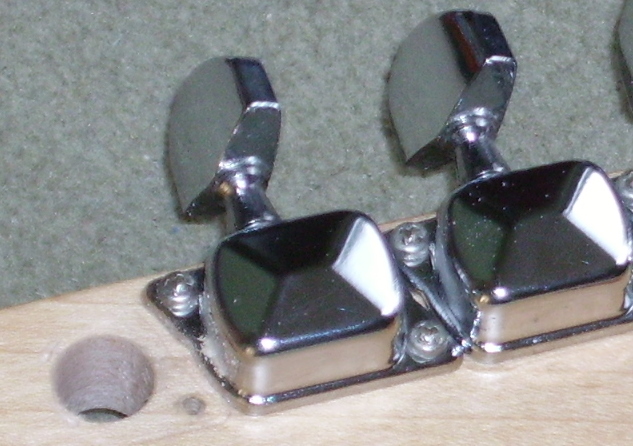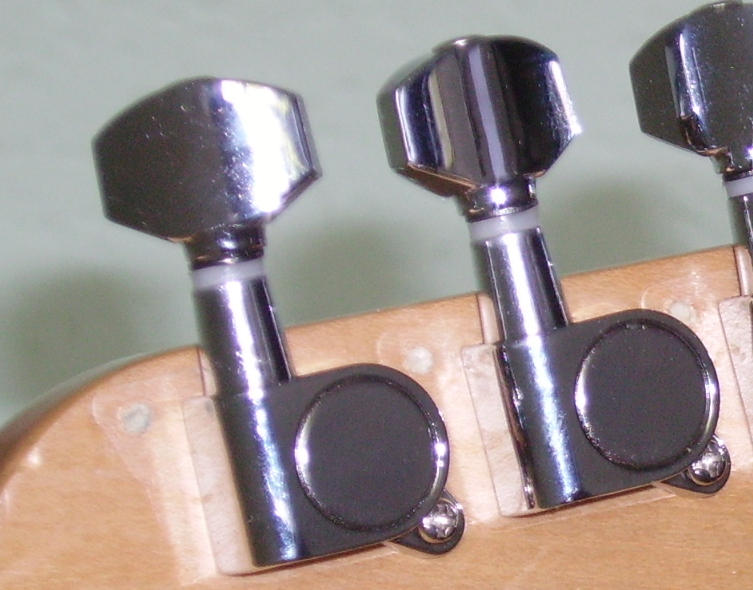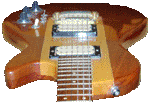Project Stratocaster
 Rumour has it that you can take a cheap
Squire Strat and, with a bit of work, turn it into a decent instrument. This is
my attempt. Rumour has it that you can take a cheap
Squire Strat and, with a bit of work, turn it into a decent instrument. This is
my attempt.
Donor instrument
Acquired 2nd hand for just £30, the donor is a 1996 Squire affinity strat 50th anniversary edition
in black. This version has a 22 fret neck and a 45mm full depth body. The serial
number implies that it was made in China in 1996.
Tuners
  The first problem to address was the guitars reluctance to
stay in tune, even with the trem locked down. This was quickly traced to the
cheap and cheerful machine heads. These were replaced with a set of cast tuners
from e-bay. I had to ream out the holes to accept the new units and plug the
existing screw holes, so it wasn't
just a straight swap. The first problem to address was the guitars reluctance to
stay in tune, even with the trem locked down. This was quickly traced to the
cheap and cheerful machine heads. These were replaced with a set of cast tuners
from e-bay. I had to ream out the holes to accept the new units and plug the
existing screw holes, so it wasn't
just a straight swap.
Electrics
I set on a
quest to source some cheap alnico pickups to replace the original ceramic units. I got lucky at the Manchester guitar
show in May 2008. where I bought a tortoise shell scratch plate, complete with
pickups and electrics, for just £30. The seller told me it was from a Japanese
Stratocaster. Even if I only used the plate, it was worthwhile. On closer
inspection the pickups were single coils with metal slug magnets amd black
vulcanised fibre flatworks. I measured the resistance at about 15K Ohm. This is
high for a single coil pickup, which are more typically about 6K. My best guess
at the moment is that these are Seymour Duncan SSL-3. The bridge pickup has a
third wire, not connected. A little measurement with the meter indicated that
this was probably a coil tap. I had never come across this in a single coil
pickup before. Again the Seymour Duncan website gave some clarification. A
number of their pickups are available with a coil tap. This allows you to just
use part of the coil to get a more "vintage" sound. The SSL3-T is just such a
unit. More evidence to support the pickup identity. The other unusual feature of
the scratch plate is a push / pull switch on one of the tone pots. This was
wired to connect the neck and middle pickups, therefore giving the option of
turning all three pickups on at once. Now that I understood what I had I
re wired the push pull switch so that it acted as a coil tap for the bridge
pickup. Otherwise the wiring was left as the standard Stratocaster circuit.
Tapped: 8.8 k
Full: 16.4 k
Pickups and scratch plate from a "Japanese Stratocaster"
tortoise shell 11 screw scratch plate to replace original 8
screw
Alnico slug magnet pickups versus ceramic bar. 14K Ohm.
Tapped single coil at bridge
Push pull pot. Drill and chisel out control cavity to
accommodate.
 
Copyright © 2007 Wired Wood.
All rights reserved.
Revised: May, 2008.
|  Wired Wood
Guitars
Wired Wood
Guitars